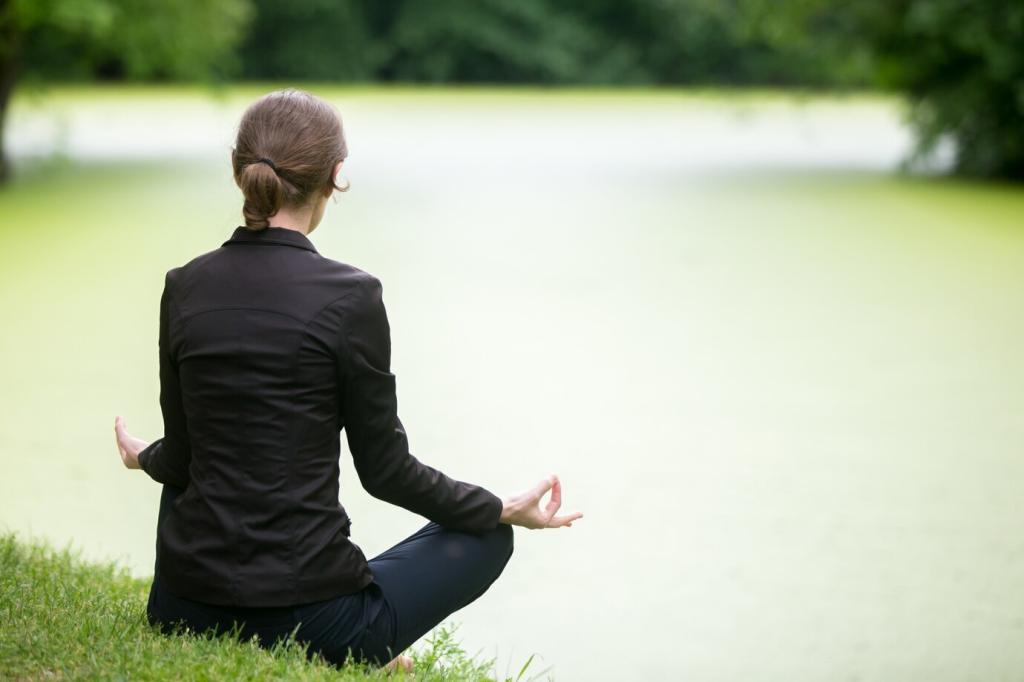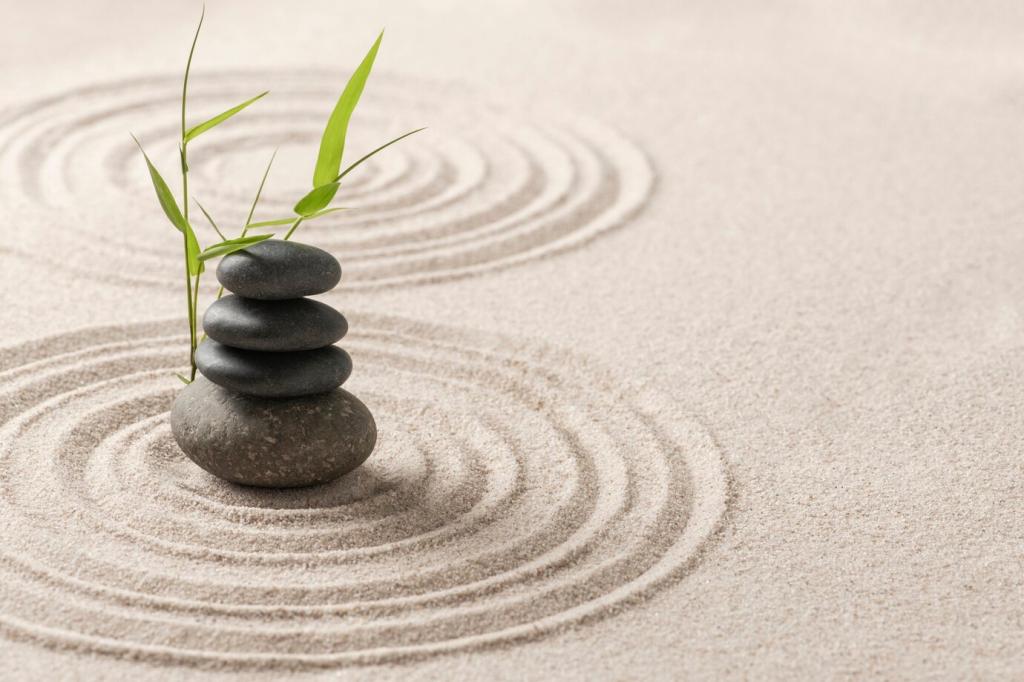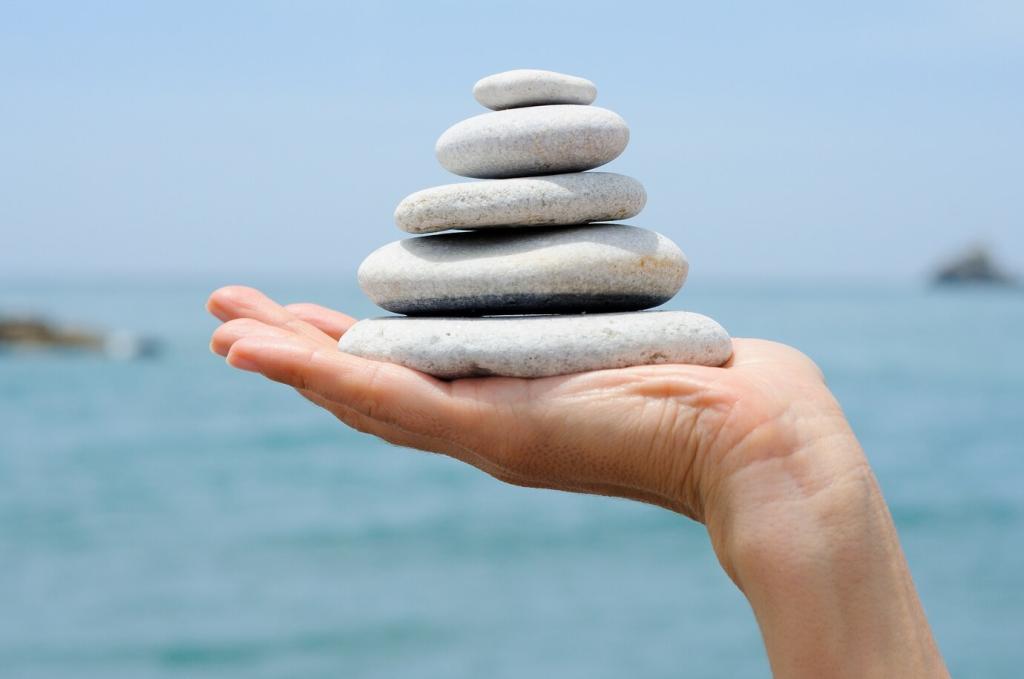
Mindful Meditation Practices for Self-Improvement
Embracing mindful meditation as part of your daily routine is a powerful pathway to self-improvement. Whether you are new to meditation or seeking deeper personal growth, these practices can help you cultivate awareness, foster emotional resilience, and unlock your full potential. Through dedicated mindfulness, you’ll gradually learn to transform daily challenges into opportunities for growth and greater well-being.

Present-moment awareness is the bedrock of mindfulness, allowing individuals to center their minds on what is happening right now. By gently noticing sensations, thoughts, and emotions as they arise, you can break the habitual cycle of distraction and rumination. This form of attention is the first step in shifting away from autopilot living, cultivating a newfound appreciation for life as it unfolds. When practiced consistently, present-moment awareness leads to a clearer understanding of your patterns and greater control over your responses, supporting continual self-improvement.

Nonjudgmental acceptance is key in mindfulness meditation, teaching us to witness our internal and external experiences with neutrality. By observing thoughts and feelings without labeling them as good or bad, you reduce the tendency to criticize or resist what you encounter. This acceptance dispels the energy spent on self-critique and allows you to deal with reality from a place of calm clarity. It encourages a gentler approach to personal growth, accepting where you are now as the starting point for positive change.

Intentionality distinguishes mindful meditation from other forms of relaxation. Setting an intention before each practice session anchors your focus and aligns your efforts with your deeper goals for self-improvement. Whether your aim is to manage stress, enhance focus, or foster compassion, remembering this intention helps reinforce motivation and encourages meaningful results. In the context of personal development, intention keeps your meditation purposeful, bridging the gap between awareness and transformative action.

Creating a Mindful Meditation Routine
Consistency is the cornerstone of a successful meditation practice. By setting aside specific times and dedicating a quiet space for meditation, you signal to your brain that self-care is a non-negotiable part of your day. Over time, this routine becomes a supportive habit, making it easier to access a calm, centered mindset regardless of external circumstances. Through perseverance, each session builds on the last, compounding the benefits and deeply embedding mindful awareness in daily life.
Diaphragmatic Breathing
Diaphragmatic breathing, often referred to as belly breathing, engages the diaphragm fully, promoting relaxation and bringing oxygen-rich air into the body. This technique counters shallow, stress-induced chest breathing and fosters a sense of calm almost instantly. Regular practice trains your nervous system to regulate stress efficiently, empowering you to approach challenges with clarity and equanimity. As you improve diaphragmatic breathing, you’ll find it easier to remain grounded, even when faced with setbacks on your self-improvement path.
Box Breathing
Box breathing is a structured technique involving equal-length inhalations, holds, and exhalations—essentially creating a rhythmic pattern that can quickly bring balance to your mind and body. Used by athletes and professionals in high-stakes environments, box breathing increases mental clarity, focus, and emotional stability. Practicing this method during meditation or whenever stress arises trains your mind to pause and regain control, strengthening your self-regulation skills for continuous personal development.

Previous slide
Next slide
Understanding your unique stress triggers is a crucial step toward managing them effectively. Mindful meditation fosters heightened self-awareness, enabling you to notice the early signs of stress and the specific situations that provoke anxious responses. By identifying these triggers in a state of relaxed observation, you’re able to intervene before tension escalates. This insight is a powerful aid in breaking the stress cycle, equipping you with the tools needed for lasting self-improvement.
Managing Stress and Anxiety
Cultivating Self-Compassion
Many individuals struggle with perfectionism, which undercuts genuine self-improvement by promoting unrealistic expectations and self-judgment. Through mindfulness, you learn to embrace imperfection as a normal part of growth. Letting go of perfectionism means allowing yourself to make mistakes, learn, and move forward without self-punishment. This shift creates a more compassionate internal dialogue, fueling sustainable progress rather than perfection-driven burnout.

Enhancing Focus and Clarity
Training Concentration
Focused attention meditations, such as concentrating on the breath or a mantra, train your mind to resist distraction and maintain steady engagement. Over time, your capacity for sustained attention grows, making it easier to tackle complex tasks and achieve goals. This increased concentration spills over into daily life, reducing procrastination and improving productivity—key ingredients for successful self-improvement. Training concentration through mindfulness is a direct route to enhancing personal and professional effectiveness.
Gaining Perspective
Mindfulness cultivates the ability to step back from thoughts and observe them from a distance, rather than getting caught in their content. This shift in perspective brings greater objectivity and clarity to your decisions, reducing the emotional reactivity that clouds judgment. Gaining this wider vantage point empowers you to evaluate situations calmly and act in alignment with your values, fostering more confident and purposeful self-improvement.
Navigating Distractions
In today’s digital world, distractions are everywhere and can quickly derail your best intentions for self-growth. Mindfulness meditation teaches you to notice when your attention drifts and gently return it to your chosen focus. This skill becomes especially valuable in moments of temptation or procrastination, enabling you to redirect your energy toward meaningful pursuits. Navigating distractions skillfully is a cornerstone of disciplined self-improvement and a hallmark of mindful living.
